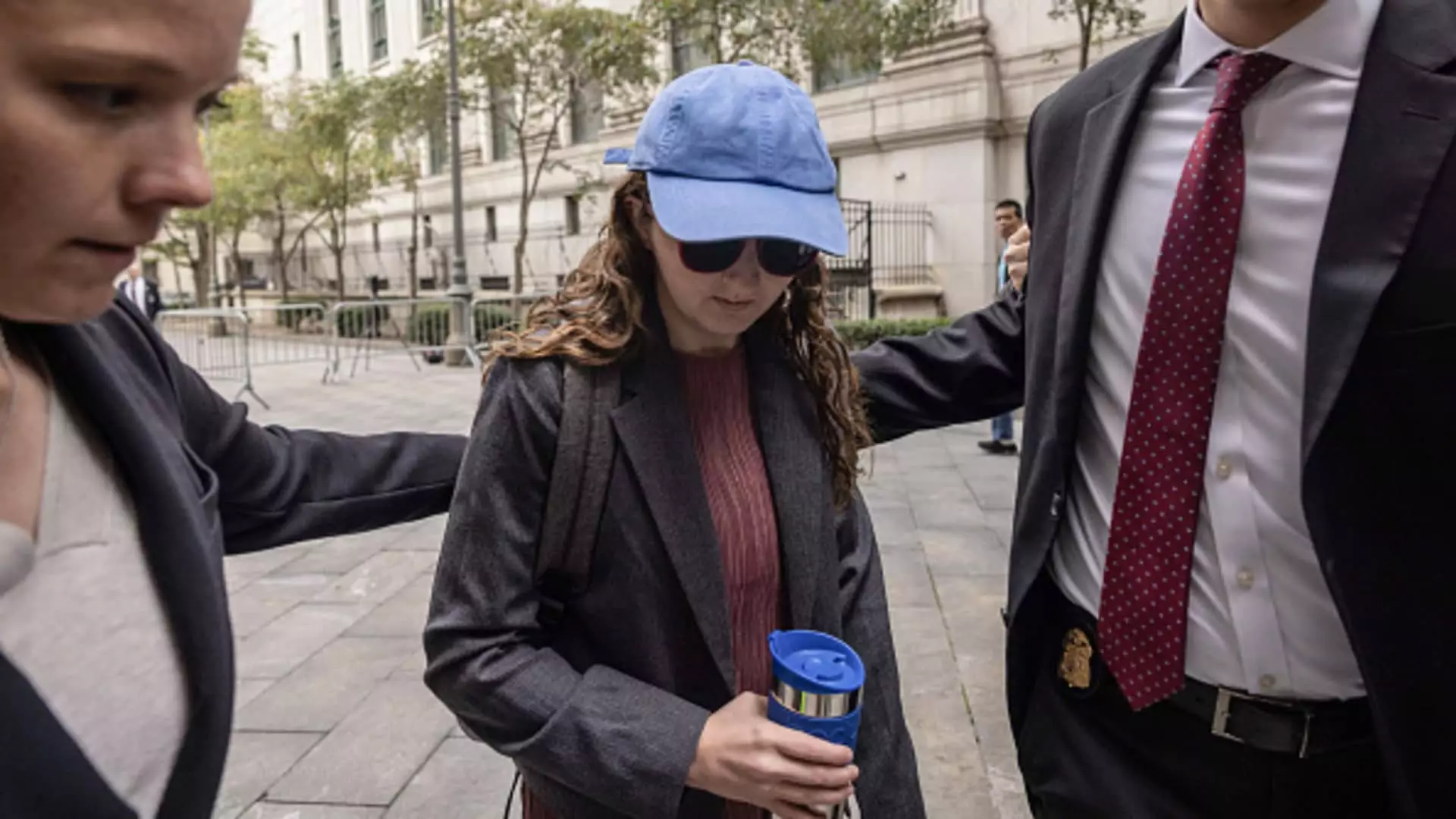In a significant judicial decision, Caroline Ellison, former CEO of Alameda Research and key witness in the prosecution of FTX’s founder, Sam Bankman-Fried, received a two-year prison sentence. Ordered to forfeit an astonishing $11 billion for her involvement in the fraudulent schemes that culminated in the collapse of the once-prominent cryptocurrency exchange, Ellison’s punishment stands in stark contrast to the lighter sentence recommended by the federal Probation Department. Ellison’s case is emblematic of the serious repercussions of financial malfeasance in the burgeoning world of cryptocurrency, illustrating the legal system’s commitment to holding individuals accountable in the face of massive corporate fraud.
Judge Lewis Kaplan’s decision to impose imprisonment, despite pleas from Ellison’s defense team for probation, raises critical questions about the judicial approach toward white-collar crimes. Typically, defendants who cooperate with prosecutors—like Ellison, who accepted a plea deal shortly after FTX’s implosion—often receive leniency. However, the significant prison term handed to her suggests that the court is drawing a firm line in the sand regarding accountability, potentially signaling a shift in how courts will treat financial crimes in the future. The parallel sentencing of Bankman-Fried, who received 25 years behind bars for his own fraudulent activities, further highlights the serious nature of their offenses and the legal system’s crackdown on the influence of deceit in the cryptocurrency landscape.
The fallout from the FTX scandal has sent shockwaves throughout the cryptocurrency sector. As the market continues to recover from this scandal, the case has highlighted the urgent need for regulatory oversight in an industry often criticized for its lack of governance. With major players like FTX once holding a market value of $32 billion, the question arises: how can investors feel secure in an environment marked by potential deception and corporate misconduct? Ellison’s sentencing could act as a pivotal moment, propelling policymakers to reflect on the necessity of more stringent regulations to protect stakeholders.
As we anticipate the ripple effects from both Ellison’s and Bankman-Fried’s convictions, discussions around cryptocurrency regulation are increasingly pressing. Given that both defendants faced a statutory maximum of 110 years in prison for their crimes, it is evident that the judiciary is not only focused on punishment but is also perhaps attempting to deter others from similar behaviors. The gravity of these sentences may prompt lawmakers to develop frameworks that safeguard investors from the underbelly of speculative trading and fraud. These judicial outcomes mark a crucial phase in what might evolve into a more robust legal foundation for cryptocurrency markets.
Caroline Ellison’s sentence serves as both a warning and a lesson in accountability within the cryptocurrency arena. As the landscape continues to change, the legal precedents set by these high-profile cases will undeniably shape future financial practices and investor perceptions in an industry at the crossroads of innovation and regulation.


Leave a Reply